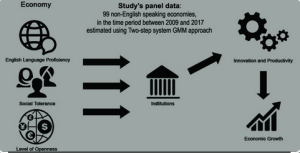Cultural differences can significantly impact economic models by influencing individual and collective behavior, preferences, decision-making processes, and societal structures. Understanding these cultural nuances is crucial for policymakers, businesses, and economists when designing and implementing economic models. Here are several ways in which cultural differences can affect economic models:

How cultural differences affect economic models
-
Table of Contents
ToggleIndividual Values and Preferences:
- Impact: Cultural values shape individuals’ preferences, influencing their choices in consumption, investment, and work.
- Example: In cultures that prioritize communal values over individualism, spending patterns and economic decisions may be influenced by collective well-being rather than individual gain.
-
Work Ethic and Productivity:
- Impact: Cultural attitudes toward work, punctuality, and diligence can affect productivity levels and overall economic performance.
- Example: Cultures that emphasize a strong work ethic may exhibit higher levels of productivity, impacting economic growth.
-
Risk Tolerance and Innovation:
- Impact: Cultural attitudes toward risk can influence entrepreneurship, innovation, and investment decisions.
- Example: Cultures that encourage risk-taking and innovation may foster a dynamic business environment, leading to economic development.
-
Social Hierarchies and Decision-Making:
- Impact: Cultural norms regarding authority, hierarchy, and decision-making structures can affect governance and economic policy.
- Example: In hierarchical cultures, decision-making may be centralized, impacting the implementation and effectiveness of economic policies.
-
Long-Term Orientation:
- Impact: Differences in cultural orientations toward the short-term or long-term can influence economic planning and investment strategies.
- Example: Cultures with a long-term orientation may prioritize sustainable development and resource management.
-
Trust and Cooperation:
- Impact: Cultural differences in trust levels and cooperation can affect economic transactions, trade relationships, and market dynamics.
- Example: High-trust cultures may experience smoother business transactions and more efficient markets.
-
Consumption Patterns:
- Impact: Cultural preferences for certain goods and services can influence consumption patterns and demand.
- Example: Cultural attitudes toward conspicuous consumption may impact the demand for luxury goods.
-
Savings and Investment Behavior:
- Impact: Cultural attitudes toward savings, investment, and financial planning can influence capital accumulation and economic stability.
- Example: Cultures that prioritize saving for the future may have different investment patterns compared to those with a more immediate consumption focus.
-
Social Welfare and Redistribution:
- Impact: Cultural values regarding social welfare, equality, and redistribution can shape economic policies and government interventions.
- Example: Cultures that prioritize social welfare may support policies aimed at reducing income inequality.
-
Attitudes Toward Authority and Regulation:
- Impact: Cultural attitudes toward authority and regulation can influence the acceptance of government interventions in the economy.
- Example: Cultures that are more receptive to government regulation may support policies aimed at market oversight and consumer protection.
-
Communication Styles:
- Impact: Cultural differences in communication styles can affect negotiations, business transactions, and international trade.
- Example: Understanding indirect communication styles in certain cultures is essential for successful business interactions.
-
Cultural Sensitivity in Marketing:
- Impact: Culturally sensitive marketing strategies are crucial for businesses entering diverse markets with different cultural norms and preferences.
- Example: Adapting product messaging and branding to align with cultural values can enhance market acceptance.
In summary, cultural differences play a significant role in shaping economic models by influencing human behavior, societal norms, and institutional structures. Recognizing and incorporating cultural considerations into economic analyses and policymaking is essential for developing effective and culturally responsive economic models.
